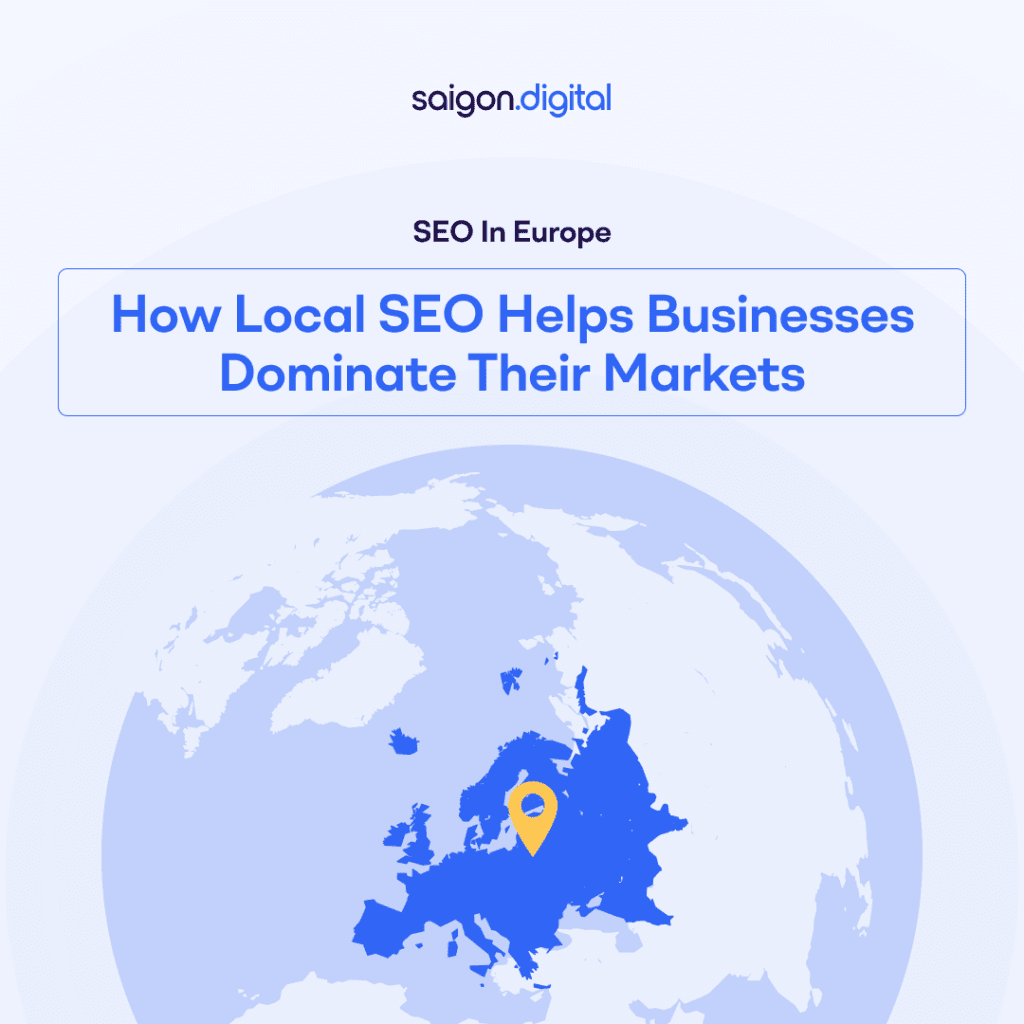
Understanding SEO in Europe
Europe contains 50 countries with 24 official languages and 160 culturally distinct groups. Because of this diverse mix of linguistics and cultural preferences, SEO in Europe isn’t a one-size-fits-all strategy with each country having its own culture and search behaviours. SEO success found in France might not translate to that of Germany or Italy. This diversity means businesses must tailor their SEO approach to meet local needs and expectations. Additionally, Google might reign supreme in most European markets. However in certain parts of the continent, other search engines act as the default for their citizens. For instance, Yandex is a major player in Russia, while Seznam is widely used in the Czech Republic. Businesses looking to expand within Europe must consider these alternative search engines and optimise their strategies accordingly.The Power of Local SEO
Local SEO is the process of optimising a business’s online presence to attract more customers from relevant local searches. Think of Local SEO as making sure your business pops up when someone in your neighborhood searches for what you offer, like “coffee shop near me” or more location-specific such as ‘coffee shop in London’. It's really about connecting with people nearby, which is super important if you're a restaurant, a shop, or any business where customers walk in the door. And even if you're a bigger company with locations across Europe, you still need to tailor your online presence to each city. People are constantly searching for ‘near me’ stuff, especially in such a vast and diverse place as Europe. If you're not showing up in those local searches, you're missing out. Google's pretty smart about this, it wants to show people the most relevant local results. So, you've got to give Google clear signals about where you are and what you do. It's like saying, ‘Hey, we're right here, and we're perfect for what you're looking for.’Local SEO Strategies that Boost Your Online Presence in Europe
In order to make your business stand out amongst your competitors in the European market, local SEO is your best friend. To take full advantage of it, there are a few strategies you can implement to ensure your business gains exposure and brand recognition.Google My Business: Your Digital Storefront
One of the most powerful tools for local SEO in Europe is Google My Business (GMB). A well-optimised GMB profile increases your chances of appearing in Google’s Local Pack—the top three business listings that appear when users conduct local searches. To maximise your GMB profile’s potential, ensure that:- Your business name, address, and phone number (NAP) are consistent across all platforms.
- You include high-quality images of your storefront, products, and team.
- You encourage customers to leave positive reviews, as these significantly impact rankings.
- You regularly update your profile with posts, offers, and events to keep it active and engaging.

Multi-Language SEO: Speaking Your Customers’ Language
One of the biggest challenges of SEO in Europe is dealing with multiple languages. A business expanding across Europe cannot rely on English alone, even if it’s the universal language; the business must adapt to local languages to truly connect with its audience. Simply translating content word-for-word isn’t enough, localisation is key. For example, French customers might use different search terms than their Belgian counterparts, even though both speak French. Similarly, the Spanish spoken in Spain differs from that in Latin America. To succeed, businesses must research local keywords and cultural nuances that influence how people search online. Creating unique, high-quality content for each language version of your website helps improve rankings and builds trust with local audiences. Google favours structured and localised content over automated translations. So you should consider working with professional translation services or native content writers since they can help elevate your existing content to fit each of your audience groups.The Role of Backlinks in European SEO
Backlinks are links from other websites to your website, acting like votes of confidence that tell search engines your content is valuable. Because of this, backlinks serve as critical ranking factors, but the way they work varies across European markets. In some countries, links from .gov or .edu domains carry significant weight, while in others, local business directories play a bigger role. Establishing connections with authoritative local websites, news outlets, and industry blogs can dramatically improve your credibility in a given market. Guest blogging, digital PR, and local sponsorships are effective ways to earn backlinks in Europe. However, businesses must ensure they are obtaining high-quality, relevant links rather than engaging in spammy practices, as Google’s algorithm has become increasingly sophisticated in detecting manipulative tactics.Mobile Optimisation and European User Behaviour
Mobile search continues to grow across Europe with 53.3% of the continent using mobile to access the World Wide Web. This makes mobile optimisation essential for SEO success. Websites that aren’t mobile-friendly suffer from higher bounce rates and lower rankings in search results. Google has always prioritised user experience, and with more people accessing the internet with their smartphones, Google starts focusing on mobile-first indexing, which means that search engines prioritise the mobile version of a website over its desktop counterpart. To stay competitive, businesses should:- Ensure their website loads quickly on mobile devices.
- Use responsive design to improve user experience.
- Optimise images and content for smaller screens.
- Implement click-to-call buttons for easy contact with local customers.






